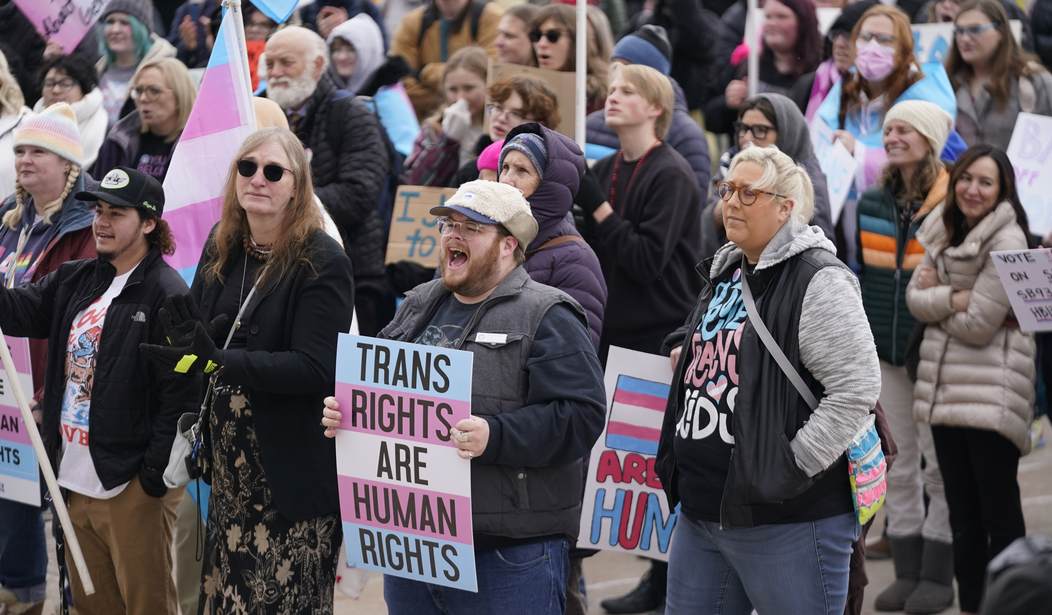Let's get started, gang. The influential American Academy of Pediatrics (AAP) claims that "withholding [gender-affirming care] is harmful to children and amounts to state-sanctioned medical neglect and emotional abuse."
However, various studies also have found the exact opposite to be true, including that so-called "transition surgery" performed on children has not only failed to demonstrate convincing improvements in mental health but also that there are treatment-associated harms, as well.
Which is it? Let's look at what the doctors say, then you can decide what you think.
The AAP made the claim in a consensus statement published in late December 2023, in response to a wave of age restrictions on puberty-blocking drugs and surgeries for children in Republican-majority states. While the AAP's views aren't medically binding, "the panel is made up of 70,000 of the country's top child doctors and its recommendations are considered the gold standard."
Here's more — which comes as a bit of a surprise:
Healthcare experts in other countries have called the AAP's comments "unethical and irresponsible," focusing more on the politics of the moment than medicine.
The US has become an outlier among most Western countries when it comes to treating children suffering from gender dysphoria - with the UK, France, Sweden, and a host of other European countries all pausing puberty-blocking drugs and surgeries in minors until more is known about their long-term mental and physical effects.
In the US, the issue has become a political lightning rod, with over a dozen Republican states limiting children's access to transition medicine and promising to punish doctors and patients who allow it.
So, when even Europe thinks America has moved too far to the left, chances are, America has moved too far to the left.
To that point, Democrat-majority states have positioned themselves as left-wing havens for LGBTQ people by requiring that insurance companies cover certain services, including "gender-affirming care" — irreversible surgeries on kids, including castration, mastectomies, and hysterectomies — as well as providing legal protection for those who travel for treatment from "restrictive states" that ban such surgeries while children are still growing.
The AAP argued, in its official journal, Pediatrics, that Republican-led legislative efforts across the country "punish caregivers and physicians when they choose to support children" — under the guise of protecting children.
They deny children access to routine health care that has been shown to decrease dramatically high rates of suicide and depression for [transgender and gender diverse] youth.
Okay, enough. As I said at the top, various studies have refuted the AAP's claims — and then some.
Springer Link, "a preeminent scientific publisher with a reputation for excellence spanning more than 150 years," reported in April 2023:
Results of long-term studies of adult transgender populations failed to demonstrate convincing improvements in mental health, and some studies suggest that there are treatment-associated harms. The purpose of this review is to clarify concerns about the rapid proliferation of hormonal and surgical care for the record numbers of youth declaring transgender identities and seeking gender reassignment procedures.
Systematic reviews of evidence conducted by public health authorities in Finland, Sweden, and England concluded that the risk/benefit ratio of youth gender transition ranges from unknown to unfavorable.
As a result, there has been a shift from “gender-affirmative care,” which prioritizes access to medical interventions, to a more conservative approach that addresses psychiatric comorbidities and psychotherapeutically explores the developmental etiology of the trans identity. Debate about the safety and efficacy of “gender-affirming care” in the USA is only recently emerging.
So, the key question is: “Do the benefits of youth gender transitions outweigh the risks of harm?”
While Springer Link admitted that the question remains unanswered due to an insufficient amount of follow-up data, it did say the following about the evidence.
The conclusions of the systematic reviews of evidence for adolescents are consistent with long-term adult studies, which failed to show credible improvements in mental health and suggested a pattern of treatment-associated harms. Three recent papers examined the studies that underpin the practice of youth gender transition and found the research to be deeply flawed.
Evidence does not support the notion that “affirmative care” of today’s adolescents is net beneficial. Questions about how to best care for the rapidly growing numbers of gender-dysphoric youth generated an intensity of divisiveness within and outside of medicine rarely seen with other clinical uncertainties.
Because the future well-being of young patients and their families is at stake, the field must stop relying on social justice arguments and return to the time-honored principles of evidence-based medicine.
The American Academy of Pediatricians was unavailable for comment, you could say.
The Bottom Line
Verbatim, from earlier in the article:
Healthcare experts in other countries have called the AAP's comments unethical and irresponsible, focusing more on the politics of the moment than medicine.
Case rested.














Join the conversation as a VIP Member